Nikki Allan: A mother's 30-year search for her daughter's killer
- Published
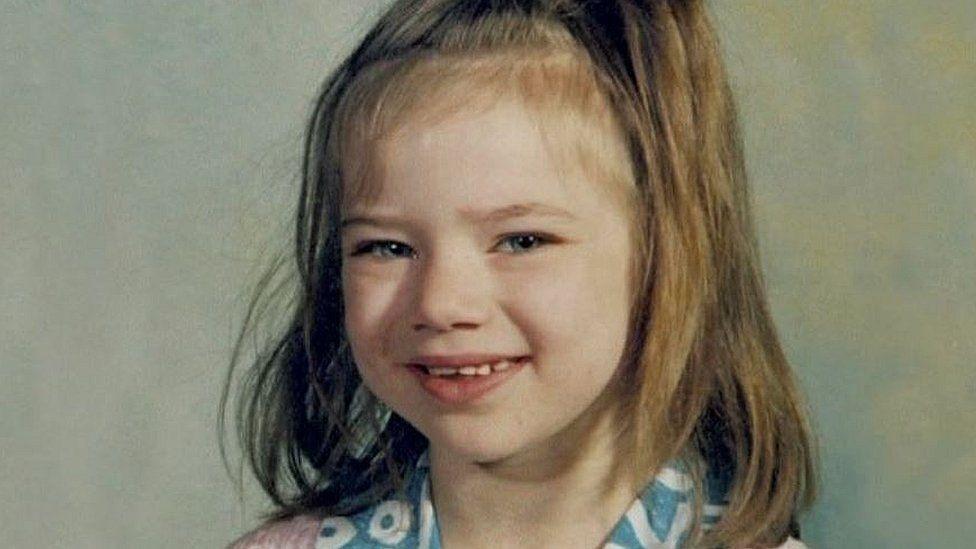
Nikki Allan was killed on 7 October 1992
Nikki Allan was seven years old when she was lured to a derelict building and brutally killed. The search for the missing girl lasted fewer than 12 hours, the hunt for her murderer went on for three decades. As her babysitter's boyfriend is finally found guilty, the BBC spoke to Nikki's mum Sharon about her 30-year fight for justice.
Nikki and her three sisters lived behind a red door in a ground-floor flat of the Wear Garth block in Sunderland's east end.
It was an area mired in deprivation and crime, but the community bonds were strong.
When Nikki went missing on a cold Friday night in October 1992, the news travelled fast.
Dozens of friends, families and neighbours mounted a search, scouring the streets and derelict buildings scattered across Hendon on the south bank of the River Wear.
It ended in horror and heartbreak the following morning when a teenage boy found Nikki's blood-soaked body in the basement of the ruined Old Exchange building.
She had been stabbed dozens of times and smashed on the head with a brick.
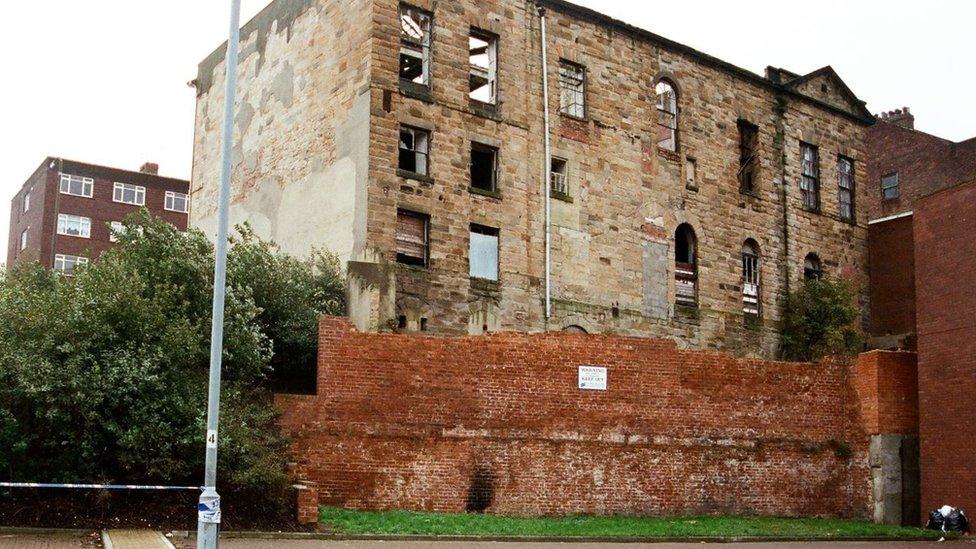
Nikki Allan was killed and her body abandoned in the Old Exchange building in the east end of Sunderland
Sharon, who was 26 at the time, can vividly recall her mother Vena putting her arms around her and telling her Nikki had been found dead.
"I just remember screaming and crying," she says some 31 years on.
The evening before had been unremarkable, humdrum even, until her daughter vanished in the blink of an eye.
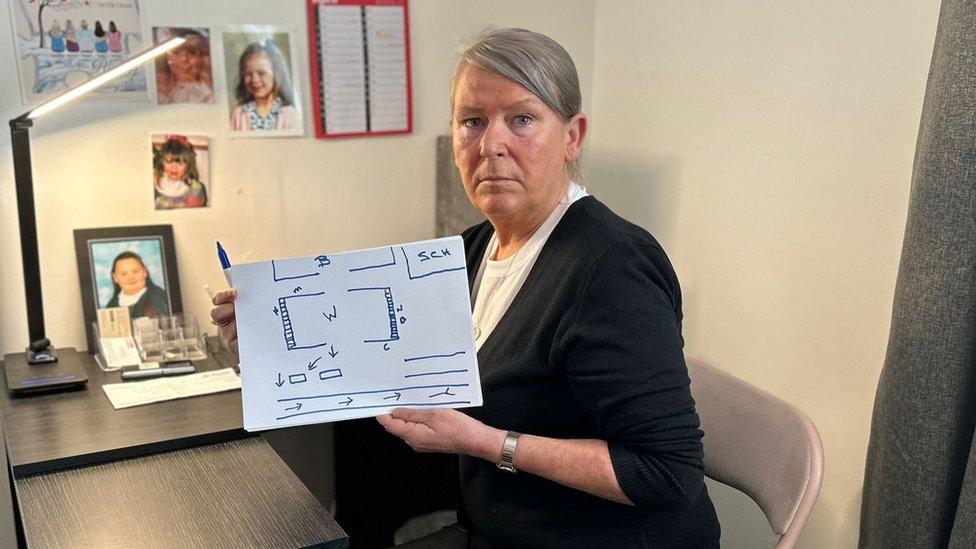
Sharon tried to track down the movements of everyone who lived in the Wear Garth flats
Sharon did some washing in her twin tub machine while her youngest daughters slept and the older two, Stacey and Nikki, watched television.
The din of the washing machine gave her a headache so, with Nikki tagging along, she went up to her parents' flat on the third floor to get some painkillers.
When they got there Sharon's mother was in the middle of vacuuming. Nikki found it all too noisy so she headed back towards home alone.
It was the last time Sharon saw her child alive.
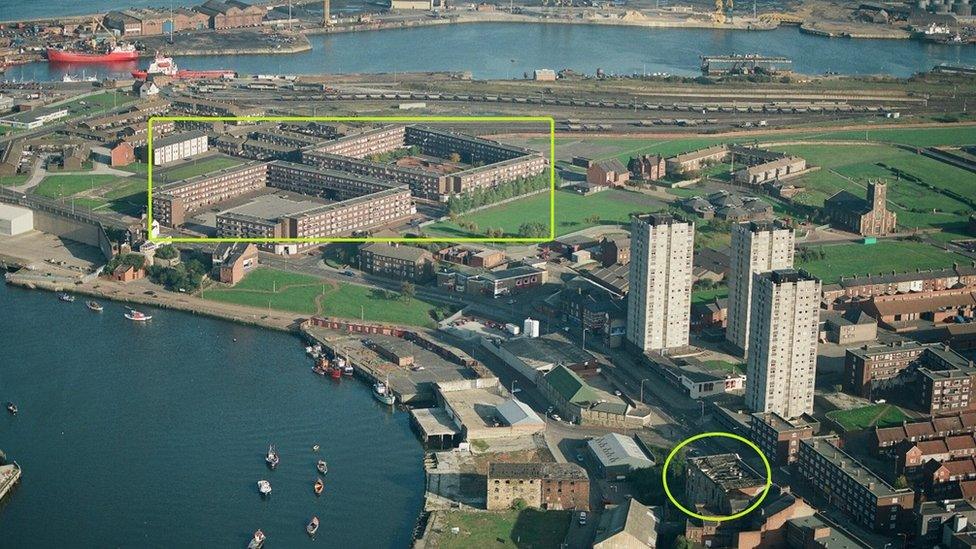
Nikki and David Boyd lived at Wear Garth (rectangle) and he killed her at the Old Exchange (circled)
Witnesses saw Nikki playing in the area around the Garths and outside the nearby Boar's Head pub.
Shortly before 22:00, Margaret Hodgson was waiting to pick up her mum from a shift at the fish factory when she saw a young girl skipping to keep up with a man.
They were heading towards the Old Exchange. She thought they looked like a father and daughter.

The story of Sharon Henderson and her hunt for her daughter's killer.

Patricia Irwin was walking past the abandoned warehouse when she heard the crack of breaking wood and what sounded like a wailing cat.
Carol Osborne was sitting in her flat nearby when she heard two loud screams.
Back at home, Sharon found Nikki was missing and raised the alarm.
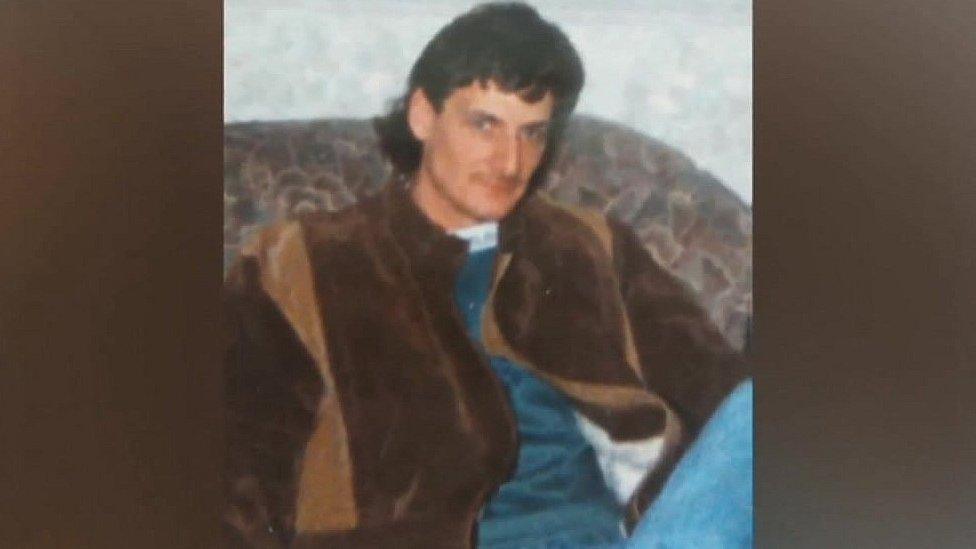
Jurors were shown a picture of David Boyd taken in about 1992...
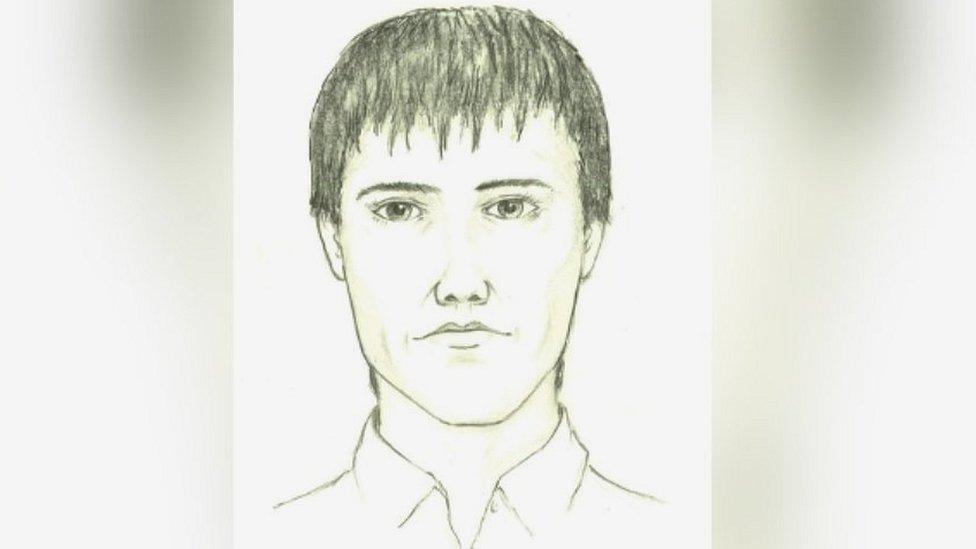
... and an artist's sketch of the man seen with Nikki the night of her murder
After Nikki's body was found, Northumbria Police quickly honed in on a local man, George Heron.
The 24-year-old, who lived in the Garths with his sister, was questioned for three days. Under a barrage of interrogation he eventually confessed to killing Nikki.
At the subsequent trial at Leeds Crown Court in 1993, the prosecution relied upon that confession but the judge ruled the taped interviews were inadmissible because Northumbria Police had used "oppressive" tactics.
Reading transcripts now it seems clear Mr Heron did not know how Nikki had been killed and his interrogators had provided him with details of the stabbing.
He told police he hit Nikki on the head with a brick and throttled her.
"You hit her with something else, didn't you George?" a detective asked.
"Don't remember," Mr Heron replied.
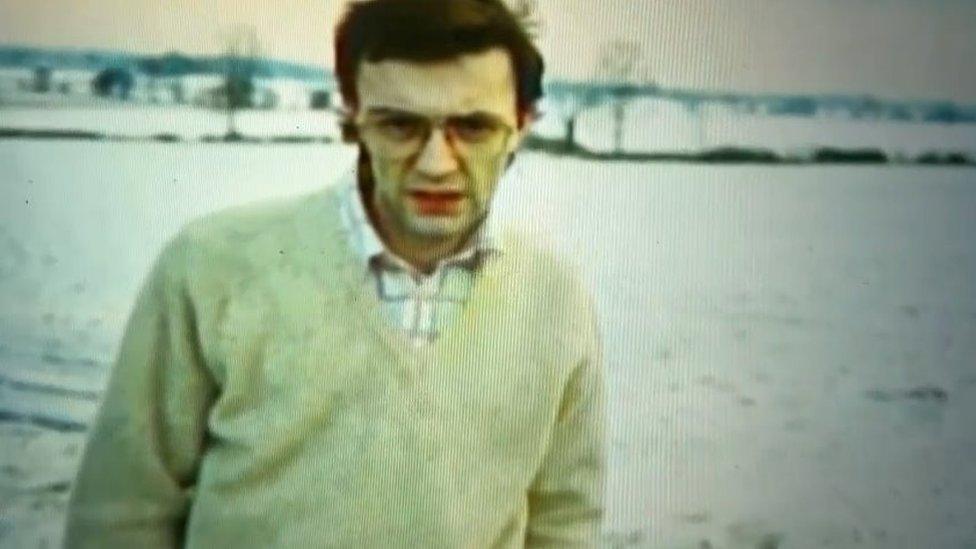
George Heron, seen here in the 1990s, was wrongly accused of Nikki's murder and was a victim of oppressive police interviewing tactics
"George, think, I know it's not very nice son, but just think what did you hit her with. Eh, George?" the officer pressed.
"Fist."
"What else? Howay George, you used something else, didn't you? George, we know. Howay George, what else did you do? Come on," the detective implored.
"Piece of metal," Mr Heron replied.
The judge in the case directed the jury to return a verdict of not guilty to murder.
The trial was held outside the North East because the feeling in Sunderland was so charged. It was agreed Mr Heron could not get a fair trial if it was held locally.
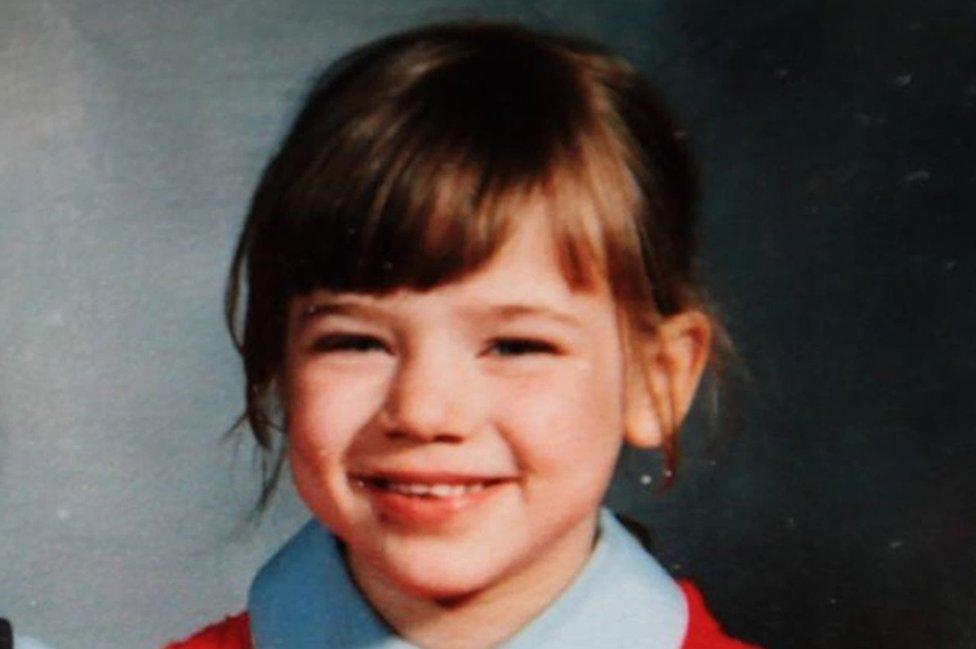
Nikki was a "clingy" child who would not readily trust strangers, according to Sharon
Screams from Nikki's family rang out around the packed court room when the verdict was read out.
Sharon still believed Mr Heron was guilty and took him to a civil court where he was found responsible for Nikki's death - but he did not attend the hearing to defend himself.
Civil court is not the same as criminal court - you only need to prove your case on the balance of probabilities rather than beyond all reasonable doubt.
Nikki's family were left without any real closure and a burning sense of injustice.
Sharon vowed to fight on.
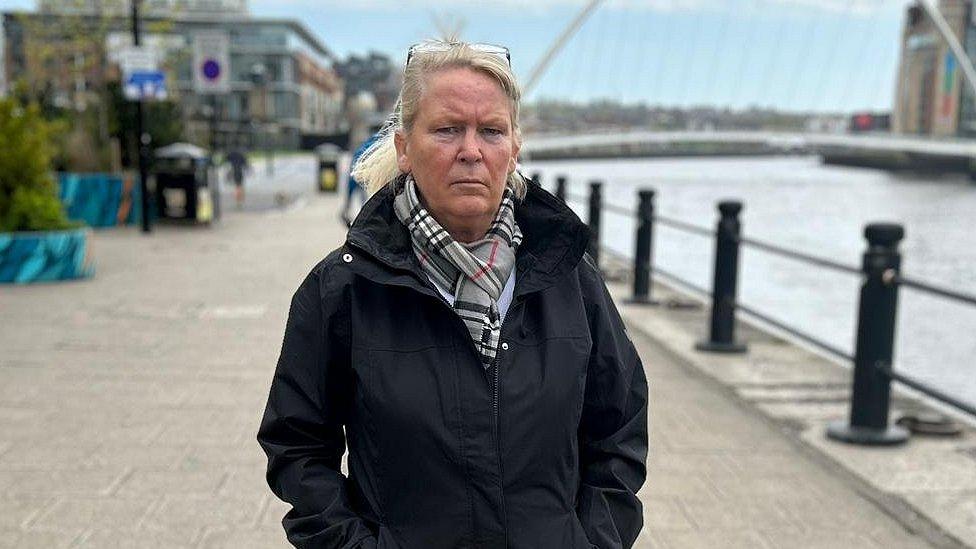
Sharon said she never stopped searching for her daughter's killer
For year after year she harried, cajoled and pushed to keep Nikki's name in the public domain.
In 2013 she secured an appearance on the TV show Crimewatch. She had arranged it all herself with the producers. Her appearance put the case firmly back in the public's mind.
In early 2014, serial killer Steven Grieveson, who became known as the Sunderland Strangler after he killed four boys in the early 1990s, was arrested on suspicion of Nikki's murder.
He was questioned and bailed and Sharon even wrote to him in prison, asking him to cooperate with the inquiry, but detectives later said his bail had been cancelled and he would face no further action.
In September 2016, Sharon called for a full reinvestigation of the crime.
She launched an online petition urging Northumbria Police to carry out a top-to-bottom review of the case, which attracted more than 500 signatures in less than 24 hours.
The following spring she had a meeting with Northumbria Police's then chief constable Steven Ashman.
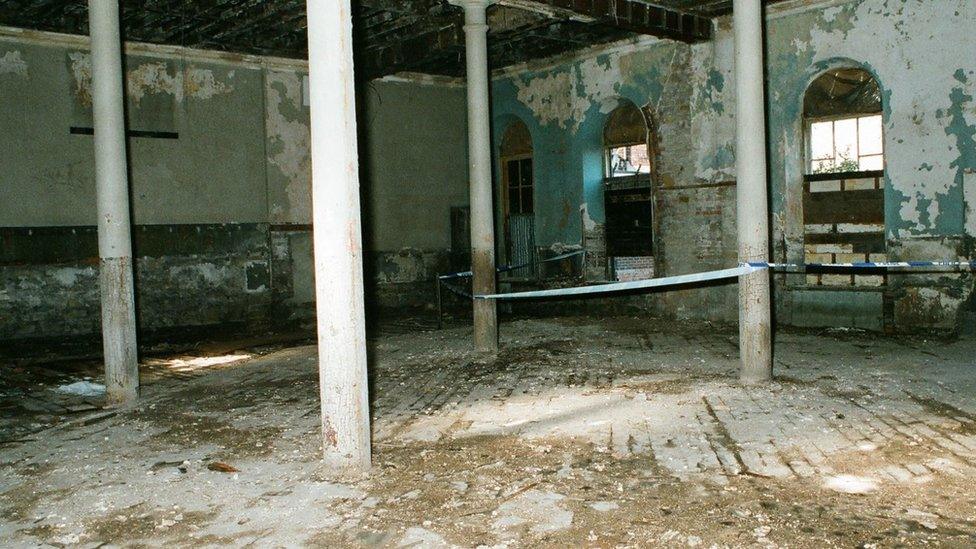
Nikki's was murdered inside the Old Exchange - her body was dragged through the building and dumped in the basement
Ahead of the 25th anniversary of Nikki's death, the force said it would commit a new forensic team to the case.
Sharon dedicated her life to getting justice for her daughter and even moved across Sunderland to be closer to people she believed knew something about the murder.
She befriended them, going to the pub she knew they drank in and exchanging nods and smiles.
Sharon also messaged them on social media. Repeatedly.
But Sharon's attempt to get closer led to her being charged with harassment. She was hit with a restraining order.
"I needed answers," Sharon said, adding: "I just got sick of being ignored."
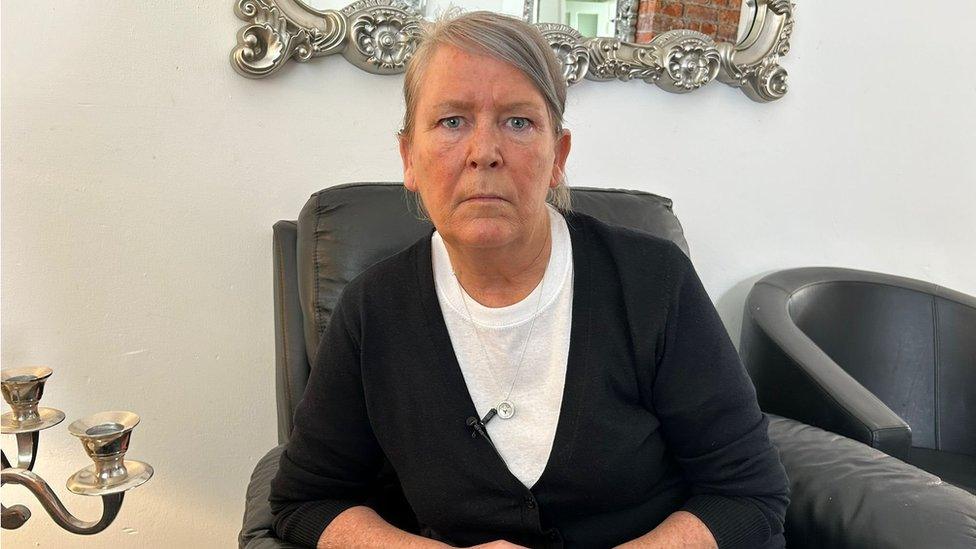
Sharon said she would go to any lengths to find her daughter's murderer
In late 2017, thanks to a breakthrough in their DNA testing, police visited hundreds of men with connections to Nikki or the Hendon area at the time to collect samples.
One of them was David Boyd, also known as David Bell or David Smith, who had moved to Stockton-on-Tees.
In April 2018 he was arrested for Nikki's murder. Body-worn camera footage captured Boyd asking officers what evidence they had against him.
That evidence, jurors at Newcastle Crown Court were told, included a match for his DNA on Nikki's clothes and inconsistencies in the accounts of his movements on the night she died.
He was 25 years old at the time and lived with his girlfriend and her family on the same third-floor landing as Sharon's parents.
It would later transpire that he confessed to his probation officer that he had sexual fantasies about naked young girls.
In 1999 he indecently assaulted a nine-year-old girl in a park, the court heard.
Watch the moment David Boyd was arrested
Boyd's then-partner was Nikki's babysitter, he knew the Old Exchange building well and matched the description of the man seen with Nikki.
He was not treated as a suspect at the time because the police were focussed on George Heron, prosecutors said. He did speak to officers, but was considered a "helpful" witness.
Sharon and her family attended parts of the three-week-long trial but much of the evidence was too much for them to cope with hearing and they left the court in tears.
But, she said, she has already lived through the unimaginable.
"As a parent, [losing a child] is the worst thing to happen you," she said. "Not seeing your bairn ever again? It's like mental torture."
But Sharon's dogged determination to get justice has come at a heavy price.
Her endeavour has taken its toll, especially on her relationships with her family.
"If the police had done their jobs in the first place and Nikki had got justice I might have had some kind of life with my bairns and grandbairns," she said.
"But they didn't know their mam or their nanna any different... fighting on."
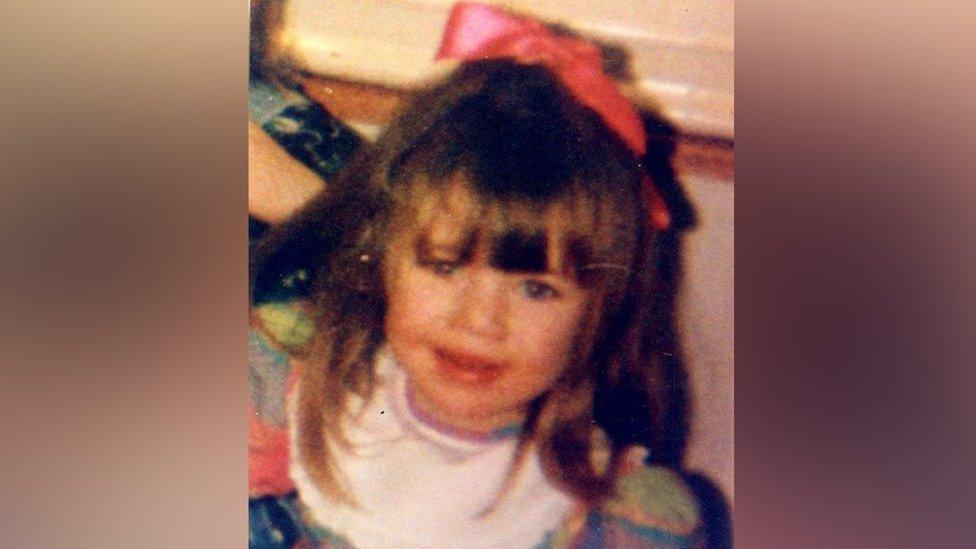
Nikki Allan was killed just 300 yards from her home

Follow BBC North East & Cumbria on Twitter, external, Facebook, external and Instagram, external. Send your story ideas to northeastandcumbria@bbc.co.uk, external.
Related topics
- Published12 May 2023
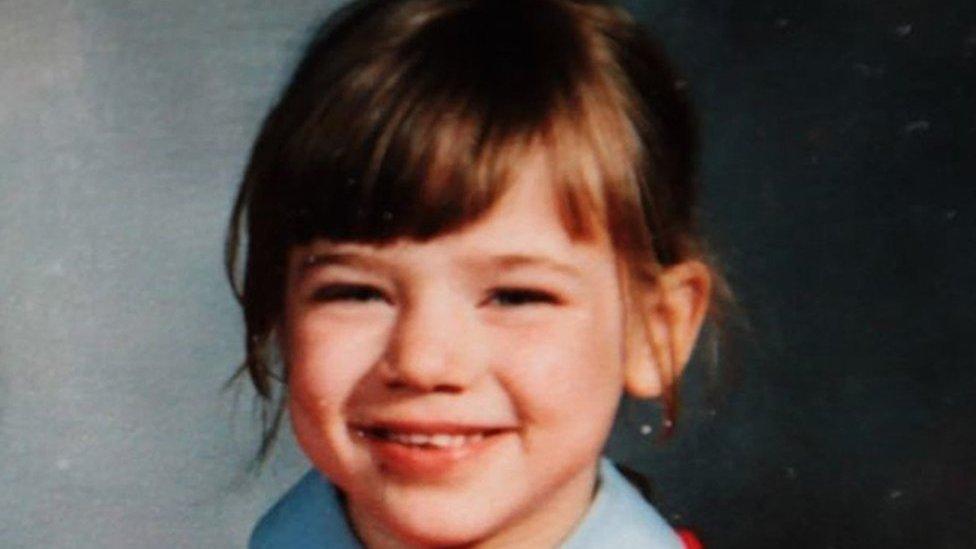
- Published9 May 2023
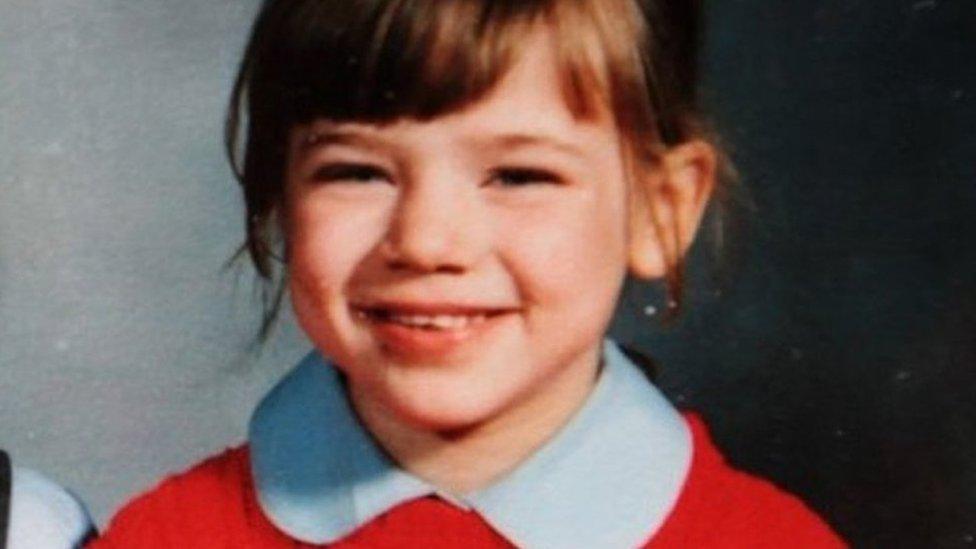
- Published4 May 2023

- Published3 May 2023

- Published2 May 2023

- Published27 April 2023

- Published26 April 2023

- Published25 April 2023
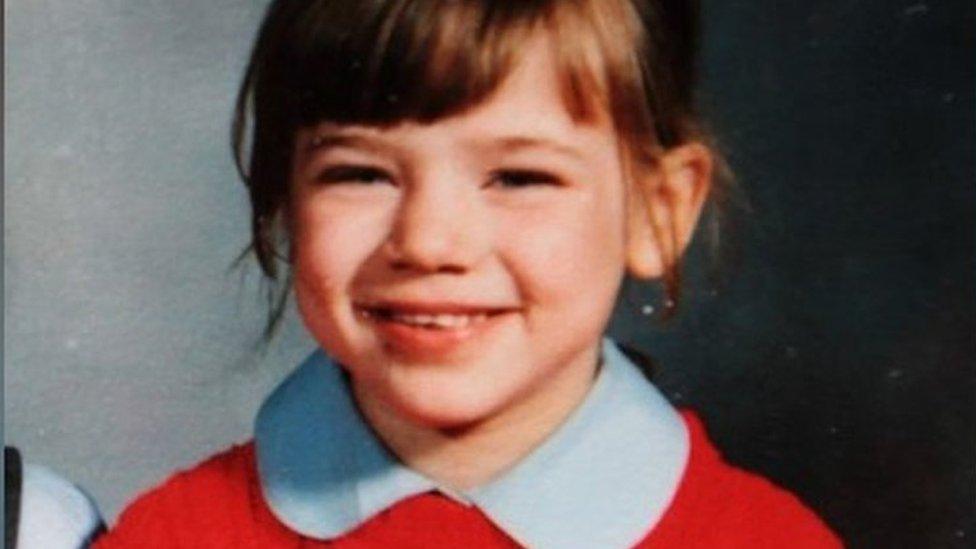
- Published24 April 2023

- Published20 April 2023
